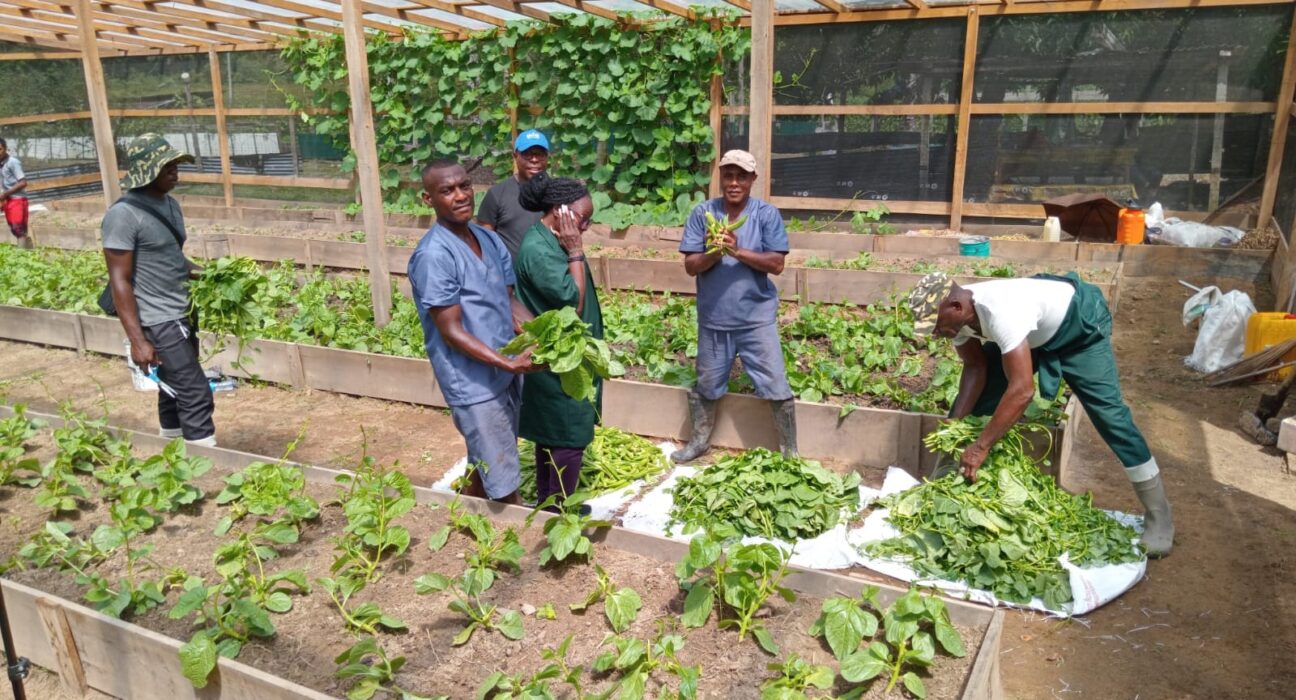By Saskia Warrick
Agriculture takes center stage in the pursuit of food security and self-sufficiency, with initiatives extending even to the prison service.
Inmates participate in various agricultural activities, including shade house cultivation, apiculture, and traditional crop and livestock farming.
Notably, the Mazaruni prison reported impressive yields in January, with significant quantities of bora, balanjay, ochre, and shallot harvested.
Several inmates shared their perspectives, highlighting the valuable skills acquired during their participation in the program.
From cultivating crops to mastering beekeeping techniques, these initiatives offer practical training and opportunities for personal development.
Rae-Dawn Corbin Cameron, Secretary of the Prison Service Agriculture Development Board, emphasized the multifaceted benefits of the program.
Not only does it provide inmates with valuable skills and opportunities for personal growth, but it also contributes to the overall well-being of staff, the prison service, and the government of Guyana.
Moreover, the agricultural program serves as a critical component of the GPS’s broader rehabilitation and training efforts.
By equipping inmates with agricultural skills and knowledge, the program aims to facilitate their successful reintegration into society upon release, empowering them to pursue sustainable livelihoods.
The GPS agricultural program stands as a testament to the transformative power of agriculture in fostering rehabilitation, empowerment, and self-sufficiency.
Through these initiatives, the GPS is not only cultivating crops but also cultivating hope and opportunities for a brighter future.

